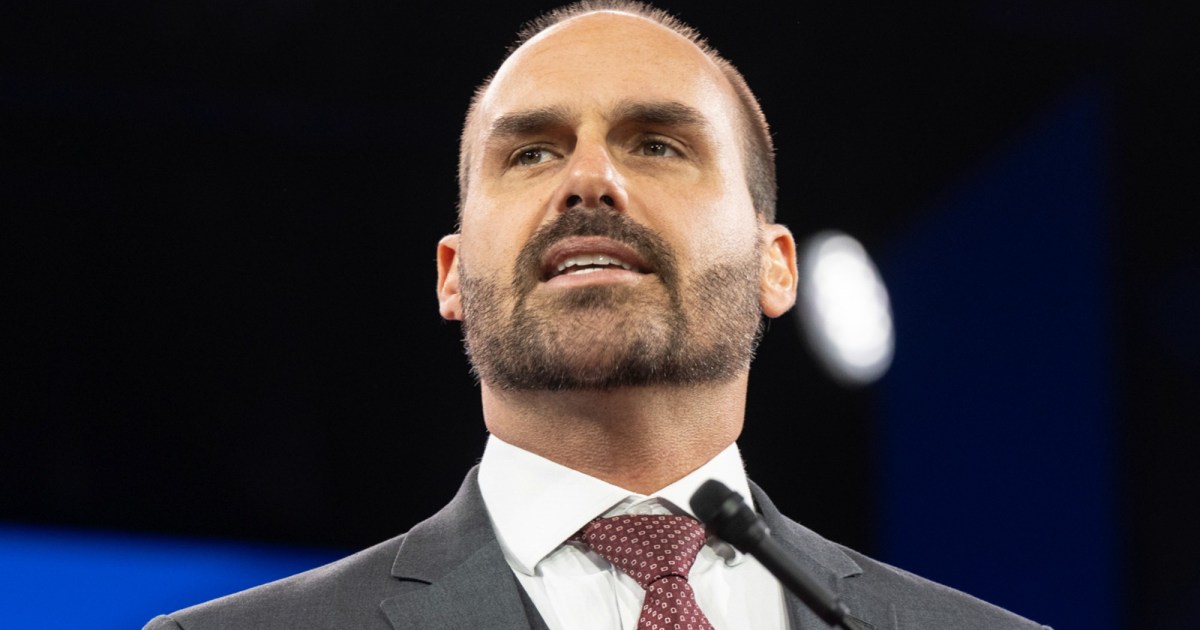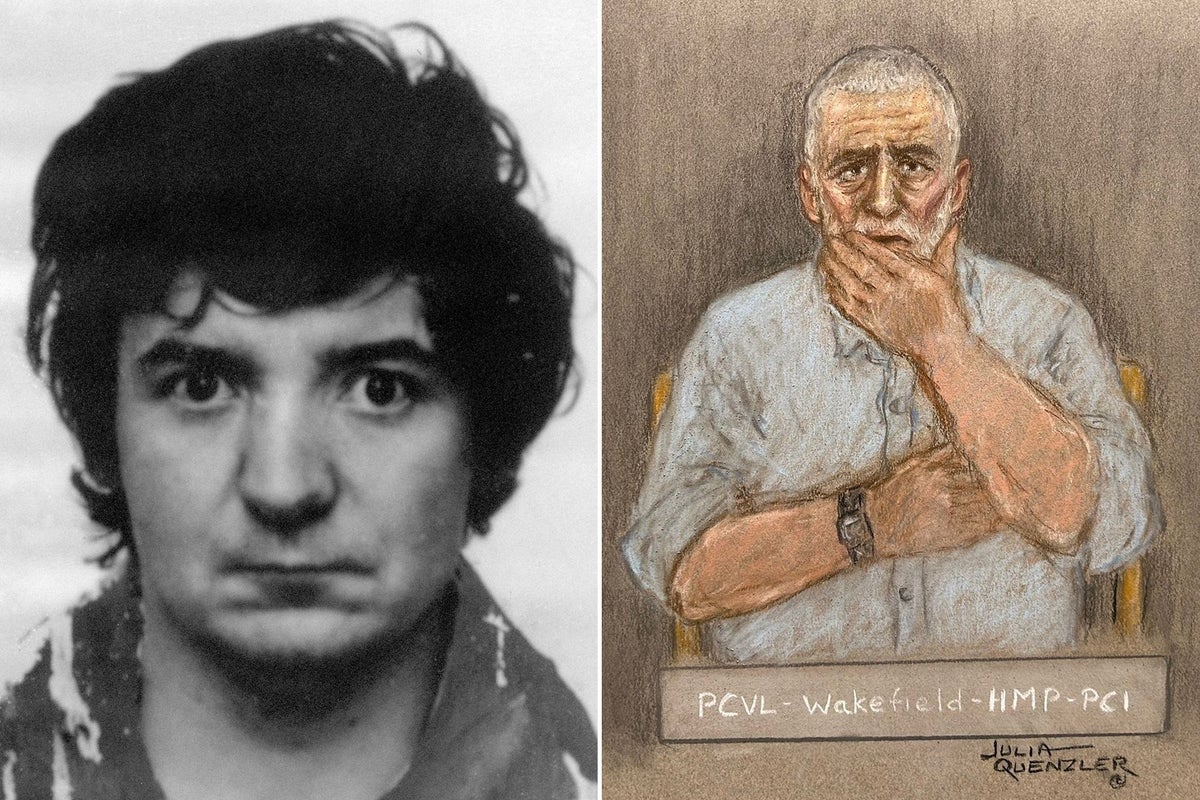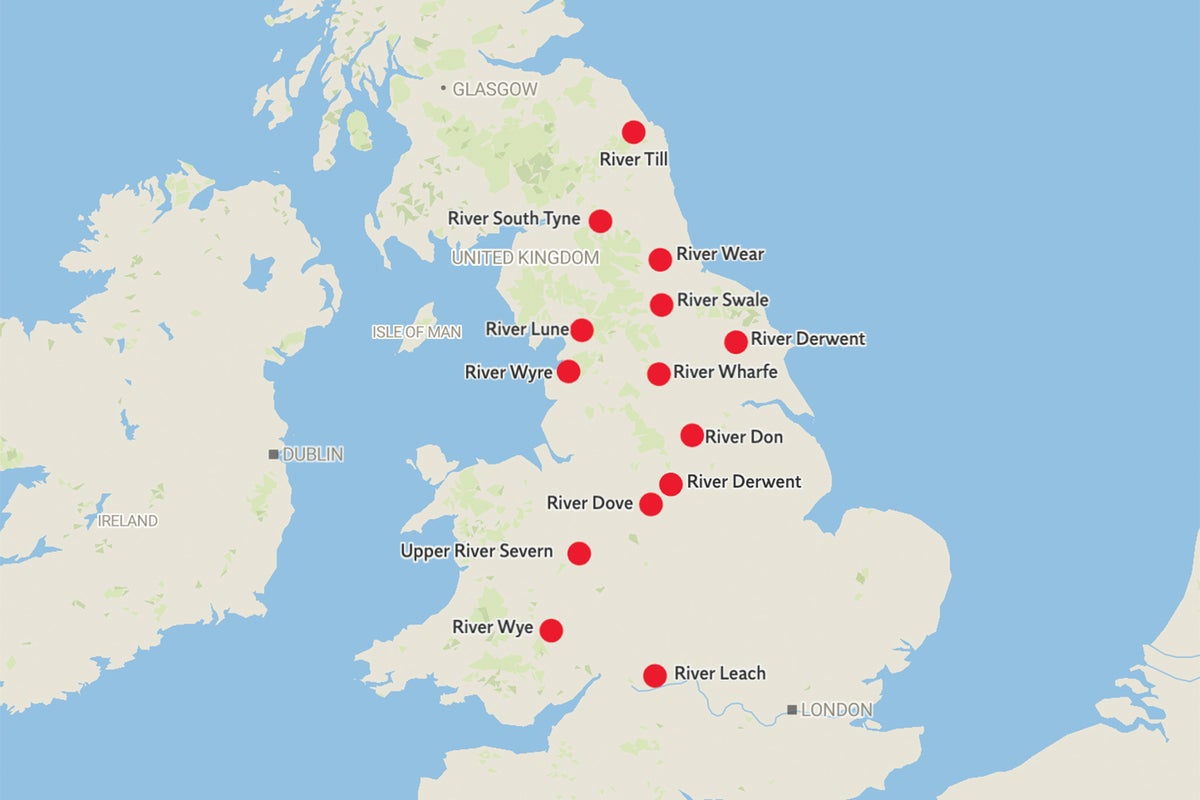In December 2023, Eduardo Bolsonaro, one of former Brazilian President Jair Bolsonaro’s sons and a congressman from Rio de Janeiro, led a delegation of federal deputies to El Salvador on a fact-finding mission focused on public safety. As part of the trip, Eduardo and his entourage visited the Terrorism Confinement Center, or CECOT, the notorious mega-prison where the Trump administration recently sent more than 230 Venezuelans accused of gang membership.
At the time, Eduardo praised Salvadoran President Nayib Bukele’s state of exception and crackdown on crime, which have led to human rights groups sounding the alarm about systematic due process violations and arbitrary detentions.
“It’s really something sensational,” Eduardo said of CECOT in a recent video shared on his YouTube channel.
In the video, Eduardo also hinted at initial conversations he said he has had with the Trump administration about potentially sending immigrants from Brazil, who are detained in the United States and have alleged ties to criminal organizations, to El Salvador. The idea, which Eduardo described as a work in progress, would involve designating the two main Brazilian organized crime groups—Primeiro Comando da Capital, known as PCC, and Comando Vermelho (CV)—as foreign terrorist organizations. The gangs started in prisons in São Paulo and Rio de Janeiro decades ago and have since expanded their drug trafficking and money laundering activities beyond Latin America.
After assessing extradition agreements between Brazil and the United States, Eduardo suggested it could be possible to have “Brazilian criminals serve their sentences in prisons in El Salvador.”
Eduardo has recently taken a leave of absence from his role in Congress and is now living in the United States. Back in March, he had already urged the Trump administration to formally designate the PCC as a foreign terrorist organization, calling it “a decisive step toward dismantling one of the most dangerous criminal networks in the world and ensuring the security and stability of our nations.” Then, on May 10, he posted on X how great it would be to see President Trump send “Brazil’s worst criminals to serve their sentences in the prison of the most hard-line guy of the moment, Bukele.”
Such a move would resemble President Donald Trump’s earlier designation of Venezuela’s gang Tren de Aragua and the Salvadoran group MS-13 as foreign terrorist organizations, later followed by the secret invocation of the 18th-century wartime Alien Enemies Act to summarily remove alleged members of those groups from the United States without due process. As a Mother Jones investigation showed, several of the men sent to CECOT under the Alien Enemies Act appear to have been targeted because of their tattoos—which experts say offer no reliable sign of membership in Tren de Aragua—and despite having no criminal history. And several federal courts have now blocked Trump’s use of the Act as unlawful. It has only been invoked three times before and always at times of war.
Earlier this month, State Department officials, including the acting coordinator for sanctions David Gamble, traveled to Brazil to hold bilateral meetings to discuss, among other issues, transnational criminal organizations. During the meetings, Trump administration officials reportedly shared an assessment from the FBI showing PCC and CV had a presence in 12 US states, including New York, New Jersey, Massachusetts, and Florida, where they are said to be involved in money laundering.
The government of Brazil’s President Luiz Inácio Lula da Silva, however, reportedly turned down the Trump administration’s request to label these gangs as foreign terrorist organizations. “We don’t have terrorist organizations here,” Mario Sarrubbo, Brazil’s national secretary of public security told Reuters, “we have criminal organizations that have infiltrated society.”
In an interview with CNN Brasil, Sarrubbo explained that Brazilian legislation defines terrorism as specific acts motivated by xenophobia or discrimination based on race, color, ethnicity, and religion. The law, therefore, wouldn’t apply to the criminal organizations operating in the country. “That [terrorism] classification,” he said, “would not be in accordance with our constitutional and legal system.”
A spokesperson for the State Department said reports of these discussions didn’t accurately reflect the engagement with the Brazilian government, adding that the focus of the delegation led by Gamble was on “strengthening bilateral cooperation on transnational criminal organizations, as well as US Counter Terrorism and Counter Narcotic Trafficking sanctions programs.”
Still, Eduardo suggested on X that the Brazilian government’s refusal shouldn’t stop the Trump administration from moving forward with the designation in much the same way as it did with Tren de Aragua, which he called the “CV/PCC of Venezuela.”















